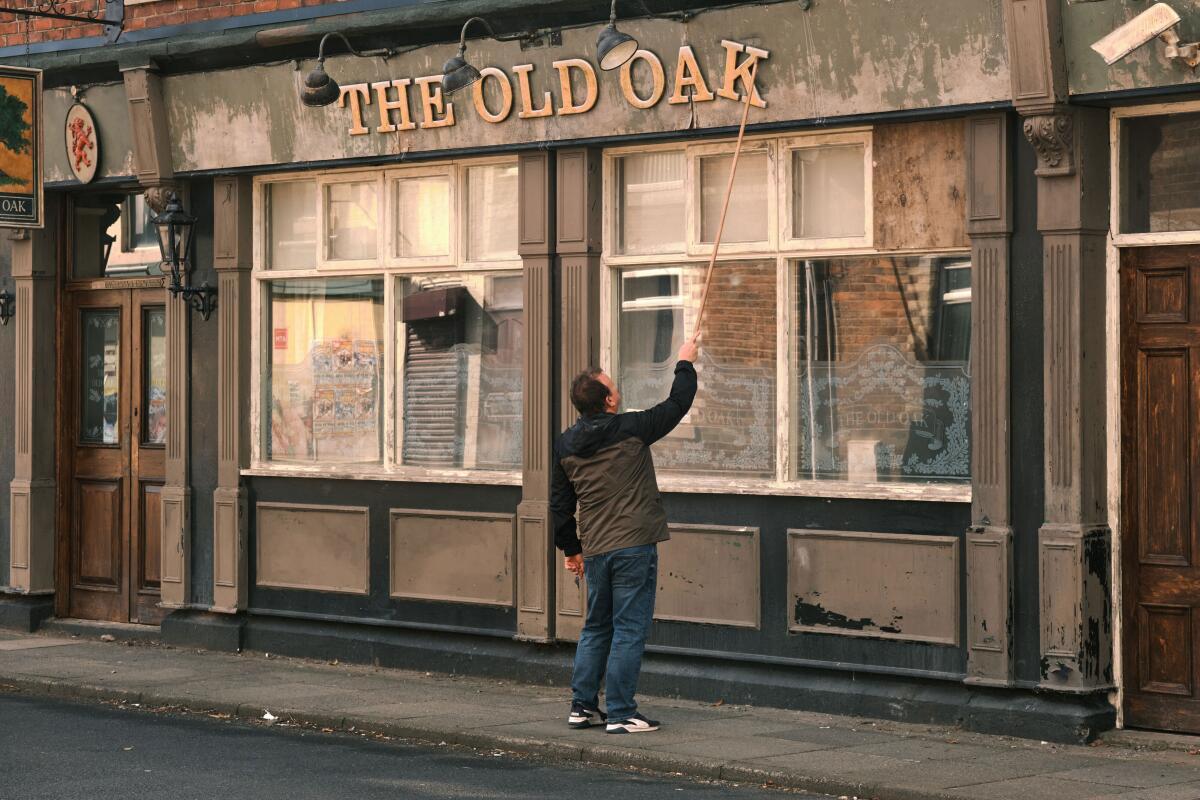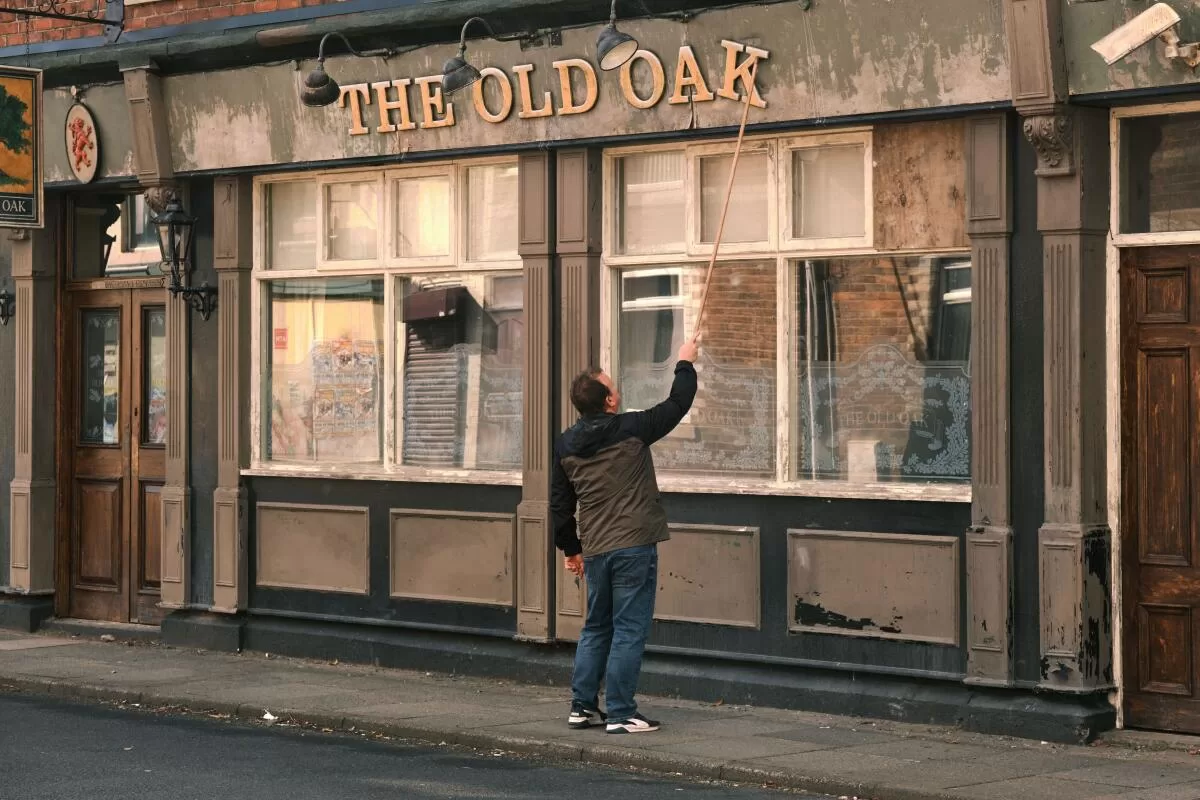If this is the final round for the 87-year-old filmmaker, he’s going out with a protest sign in one hand and a pint in the other. That’s because “The Old Oak,” written by longtime collaborator Paul Laverty and named for the last remaining pub in a downtrodden town in northeast England, shows Loach no less committed to the cause but also as faith-filled as he’s ever been.
It’s 2016 when we enter the story via black-and-white photographs of a busload of displaced Syrians, mostly mothers, children and the elderly, being dropped off in the mining town of Durham, the film’s audio dominated by locals loudly and bigotedly condemning their arrival. When the film itself starts (and cinematographer Robbie Ryan’s clean naturalism takes over), we learn that the refugee documenting everything is a young woman named Yara (Ebla Mari), whose first interaction is with a brutish man who violently grabs her camera and breaks it.
One of the aid helpers appalled at his townsfolk’s behavior is divorced, middle-aged pub owner TJ (an affecting Dave Turner), a lonely man with a good heart and a lot of hurt. He offers to help get Yara’s camera repaired and the unlikely pair strike up a friendship borne of mutual empathy for each other’s pain: her homeland and family brutalized by war; his once-thriving community battered by economic neglect and a poisoning fear. The latter is routinely manifested in the churlish Old Oak regulars for whom nostalgia-fueled resentment is no longer a condition to be changed but a disturbingly snug set of clothes; they view TJ’s kindness toward Yara (or anybody’s charity toward the Syrians) as a betrayal.

(Zeitgeist Films)
But on the walls of the threadbare pub’s long-shuttered backroom is photographic evidence — a reminder to TJ, an inspiring history for Yara — of the country’s 1984 miners’ strike, when an embattled people looked out for one another. Soon enough, TJ is spearheading a revitalization of the room so two struggling worlds can meet: communal dinners to feed both the refugees and a deprived town’s isolated youth. As things play out, however, Loach and Laverty are realistic enough in their tale of invigorating compassion to grasp that, as difficult as it is to find and nurture hope, just as essential is recognizing the danger lurking in festering grievance.
As vitally angry as Loach’s films can often be about the issues they’re addressing, the secret glue to his unvarnished, in-the-moment style has always been what camaraderie and care look like within any maelstrom of injustice and oppression. The authenticity of his casting, including his unwavering belief in newcomers, is flawless here, with Mari’s portrait of resilience sharing the frame wonderfully with Turner’s bearish, wounded air. And in a key role as a pub regular, Trevor Fox makes palpable the injury and distrust that can warp an honest reaction to a stranger’s struggles.
Loach is the rare movie agitator who can point to results. In 1966, his television film “Cathy Come Home” rattled the U.K. into acting on homelessness. We may be too inured these days to the unceasing drumbeat of immigration’s realities and disinformation to expect “The Old Oak,” as deeply emotional as it is, to have a similar impact. But we can still feel thankful for this beautifully indignant director’s career-long, never-wavering theme of solidarity, of seeing others’ problems as ours too, worth striking about and fighting against. It’s a righteous oeuvre with marvelously strong roots.
‘The Old Oak’
Not rated
In English with English subtitles (due to strong regional accents)
Running time: 1 hour, 53 minutes
Playing: In limited release.
